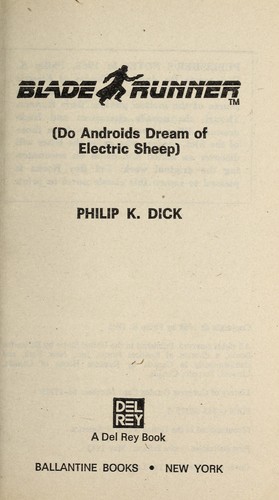4thace reviewed Blade runner by Philip K. Dick
Review of 'Blade runner' on 'Goodreads'
4 stars
The story was well worth reading because it featured a number of subplots which were not part of the movie Blade Runner: (1) Animal husbandry as a status symbol, accounting for the original title of the story, (2) The cult of Wilbur Mercer dedicated to the cultivation of universal empathy using an "empathy box" device, which suffers a setback in credibility near the end of the story, (3) The use of the "mood organ" to achieve various mental states as entertainment or to relieve stress, (4) The universally watched "Fred Friendly" television show on the government television channel and its overtones of mass indoctrination, (5) The persistence of dangerous radioactive fallout from World War Terminal which leads to the brain damage experienced by the 'specials' such as J. R. Isidore. The characters diverge in greater and lesser degrees where they overlap between the two works, and the ones which appear in the book do seem to serve their functions emphasizing one ore more of these themes, although I don't think there was any one character who was extremely striking. In fact, it seems to be a habit of the author's to try to portray the characters in a subdued manner, often expressing comically conventional sentiments as a comment on the way the society in this world works. His Rick Deckard character is by no means strictly admirable, with his acceptance of the mood altering technologies as a matter of course, and his barely disguised contempt for the other characters, human and android.
The style of writing takes some getting used to, with long meandering conversations occupying the majority of the time, and description kept to a relatively minimal amount. It felt kind of narcotizing to hear them drone on. When a scene depicting action does occur, the author seems to delight in undercutting it in some way, so we have the shadow police station that turns out not to be a real menace after all, animals which seem at first to be real but turn out to be electric, and the motives of both humans and androids subject to major revisions upon reflection. Stylistic flaws aside, these days Philip K. Dick is well known for having conceived of dystopias which have been a major influence on other writers as some of his farfetched ideas have become closer to the way things actually are.

